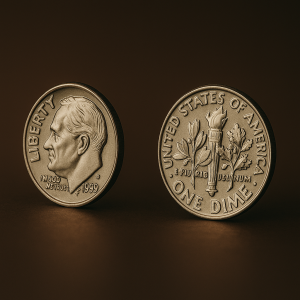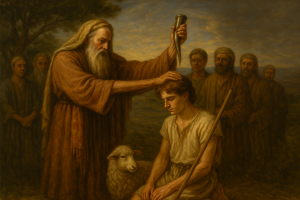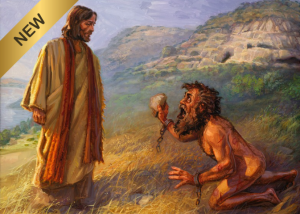This is a terrific question. Several motivations might prompt belief in God. Here are some reasons to consider:
- Some people come to believe in God because they acknowledge their hunger to worship. They realize that mankind is ‘overengineered’ for this world, capable of vision-casting, innovation and harnessing natural resources for the greater good. They sense a presence of love, from others and toward others, that cannot be rationally explained, so they turn to God for that reason.
- Some realize that man has a vast capacity for evil. We often attribute that malevolence to childhood abuse or bad genetics, but too often there is no history or indication of either one. It is therefore reasonable to postulate that we have a ‘sin nature’ — a tendency to perpetrate misdeeds of varying degrees simply because of built-in, selfish, hedonistic proclivities.
- Some are moved by the testimony of countless millions of people throughout history who claim to have been enlightened or born-again. These believers feel bathed in the presence of a higher power; they perceive love on a grand scale. They rightfully attribute this to God.
In my own case, from a very early age, I had a deep hunger for truth. I mean Truth with a capital “T” — something lasting and permanent, something you could stress test down every chain of reasoning, and it would hold up under the scrutiny. I eventually came to the God of the Bible after first running down several blind alleys.
I started with science. I read college textbooks at age 12, looking to physics and chemistry to provide me with lasting answers. However, I found too many blind alleys, too many irrational theories of upwardly creative macro-evolution, too many universe-origin theories that defied the 1st and 2nd Laws of Thermodynamics. There were too many ‘we’re not sure’ replies in the scientific community to satisfy me. I also disliked the lack of integrity — the willingness of some researchers to ignore their own circular reasoning. So it provoked suspicion in me that science couldn’t lead me to Truth.
Then, about age 16, I turned to European existential philosophers, thinking they might have the answers. I read Pascal, Jean-Paul Sartre, Kierkegaard, Nietzsche, and Camus. I loved the concept of complete isolation and meaninglessness they promoted. After the moon landing, I pulled a picture of Neil Armstrong from Life magazine, with him standing on the surface of the moon showing a beautiful, blue Earth in the background. I wrote on the bottom, “Man is fundamentally alone in the universe.” It seemed like a stark confirmation of the philosophies I’d studied. Teachers at my high school brought me in to their classes to teach this lonely, existential belief system to their students. But, eventually, this too seemed hollow. I knew there had to be more — somewhere.
Then, like the hedonists of Rome and Greece, I searched for truth through bodily experiences, mastering the art of seduction. However, I utterly avoided drugs, somehow knowing they would dampen my intellectual faculties. But even these pursuits of physical pleasure eventually left me cold and angry. The whole lifestyle was infused with manipulation and half-truths. I knew this approach was simply based on self-indulgence which would never lead me to the Truth.
Finally, someone introduced me to the God of the Bible. Dismissive at first, I then pressed deep into its claim of “unsearchable riches.” Here it was, at last! The Word of God offered a description of a righteous, multi-millennia strategic plan where the God who dwelt in an unseen spirit realm became the Author of life, colonizing this 3-dimensional universe and creating a race of living, breathing children. His motivation was pure, fatherly love. Every question I posed provoked a solid answer. Yes, it eventually required of me a new quality called faith, which is the currency of heaven, but the reward was well worth the investment.
Please trust me, but then start searching for yourself. The Bible describes the only cohesive, self-referential master plan of origins, history and destiny. Archeological discoveries continue to support its claims. I sincerely recommend that you explore its premises and its conclusions. I promise you that the God of Heaven will respond to the tiniest expression of your faith. Bless you for asking this important question.








